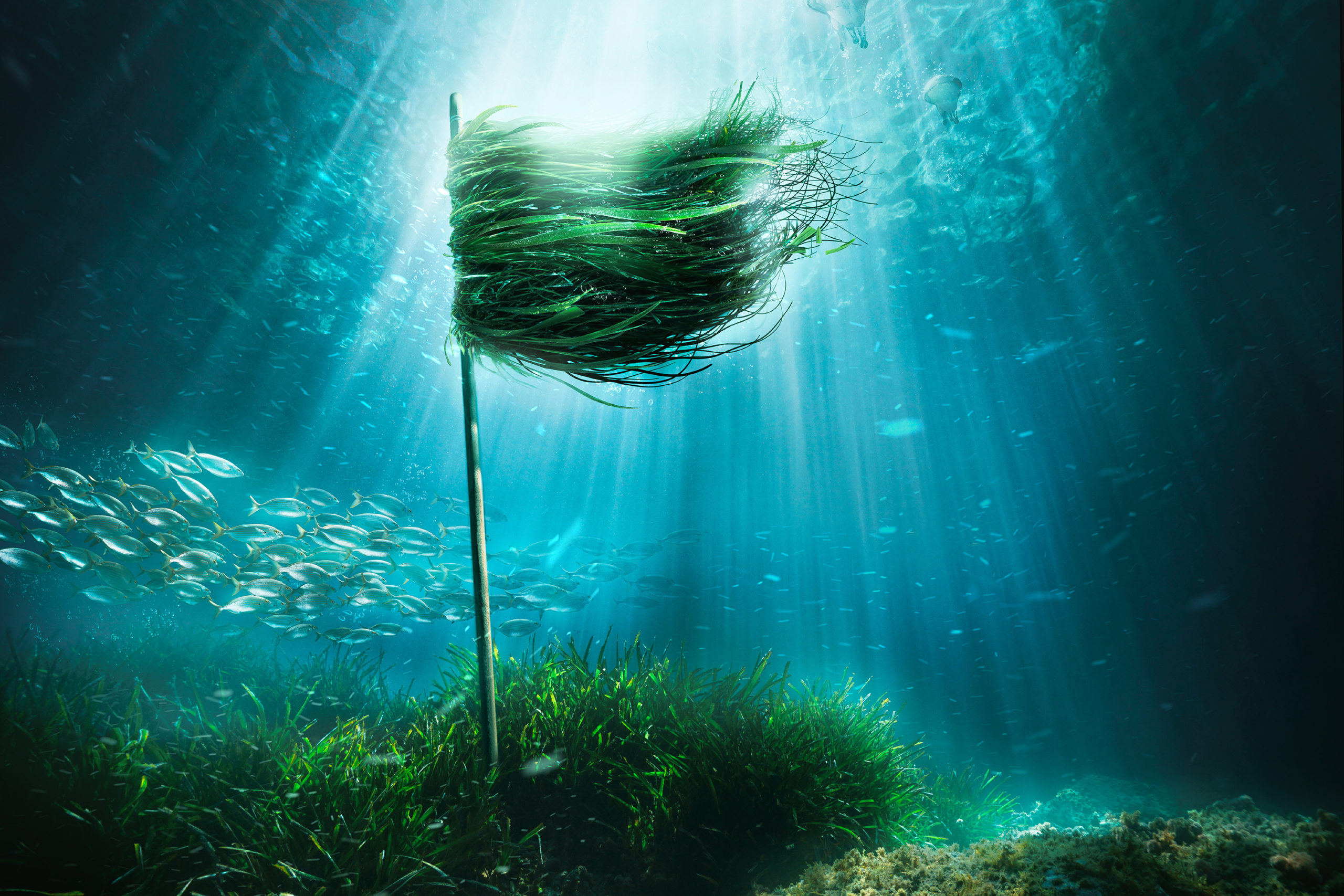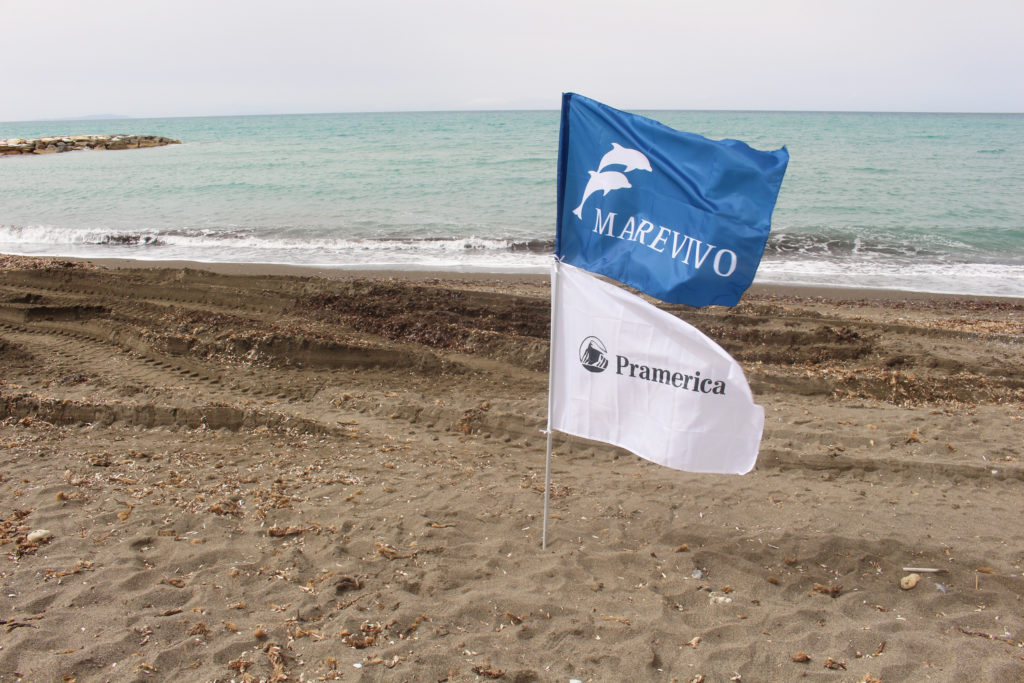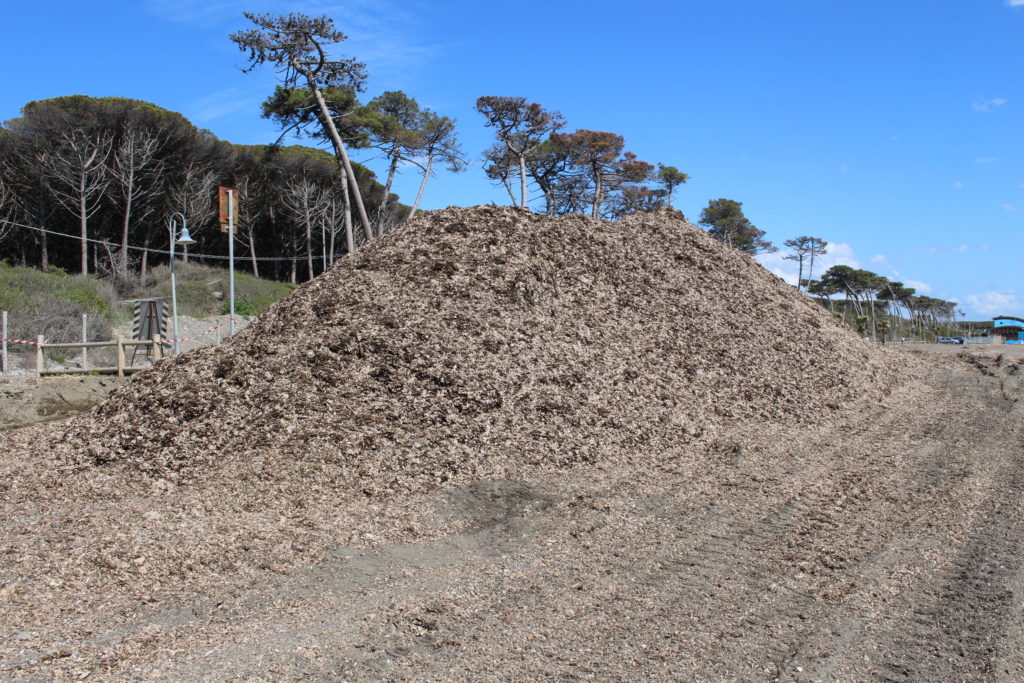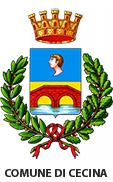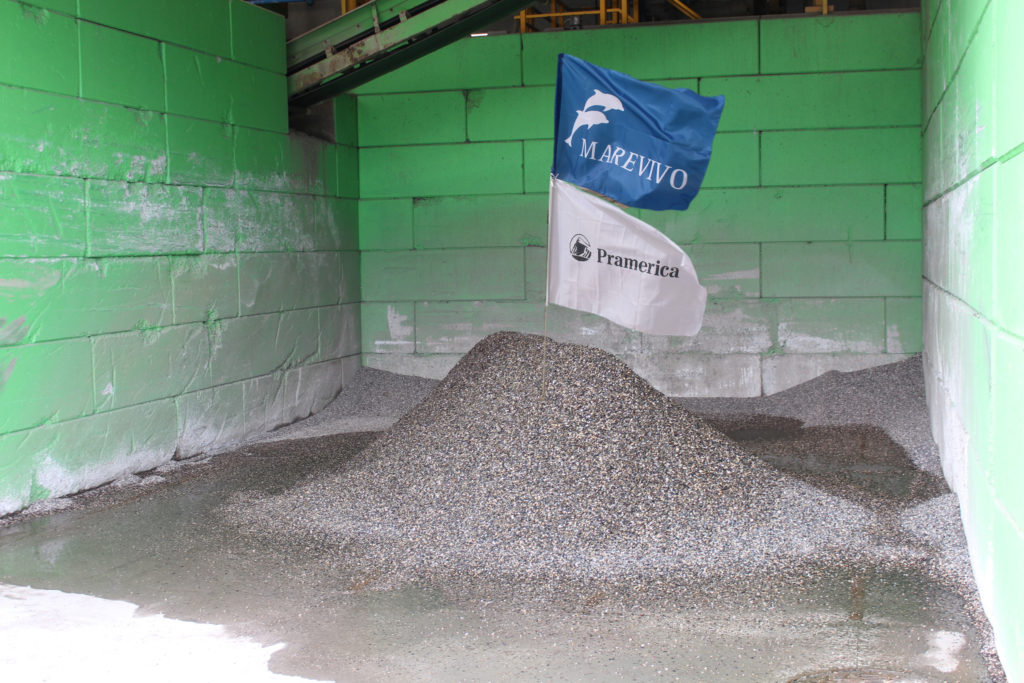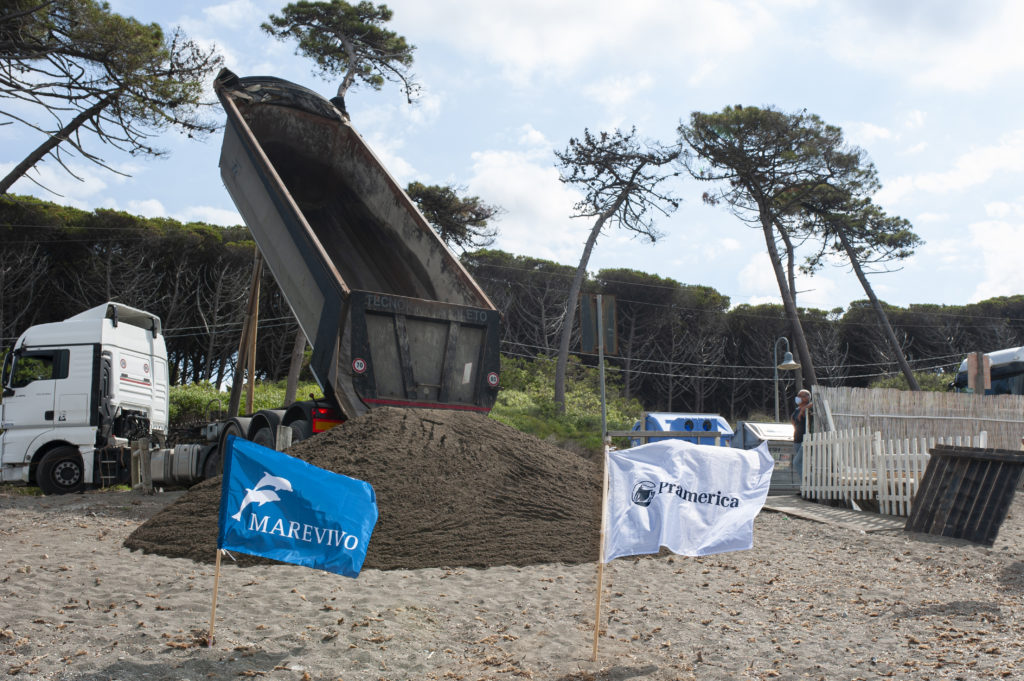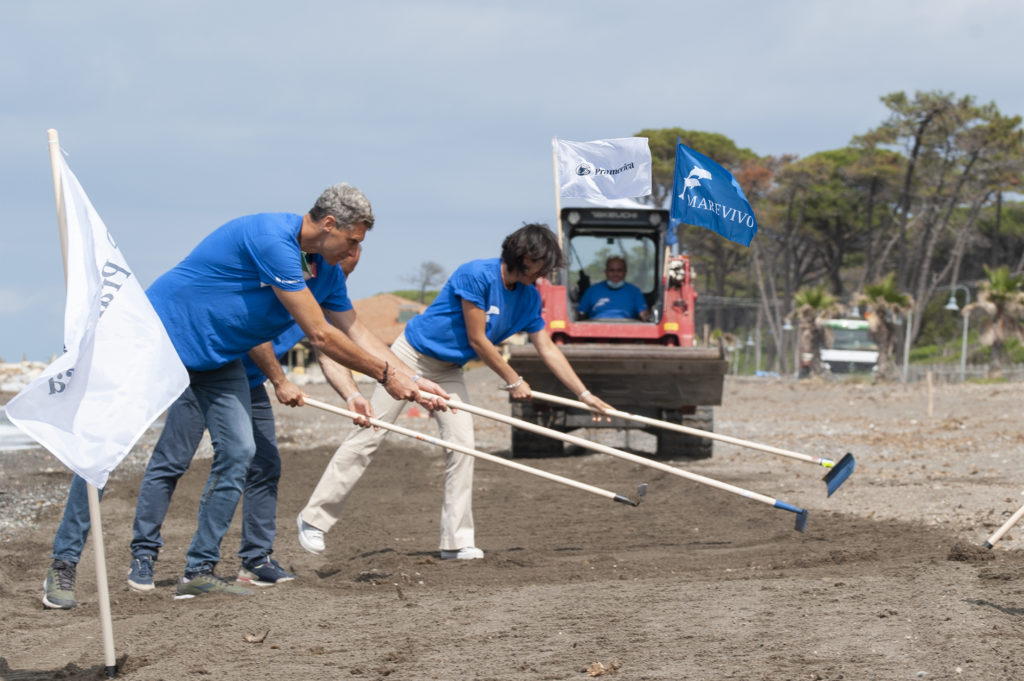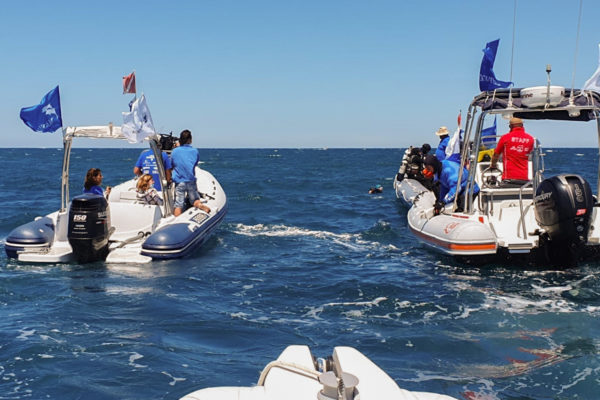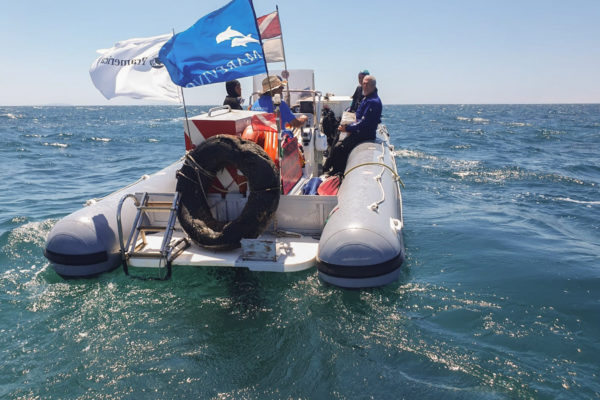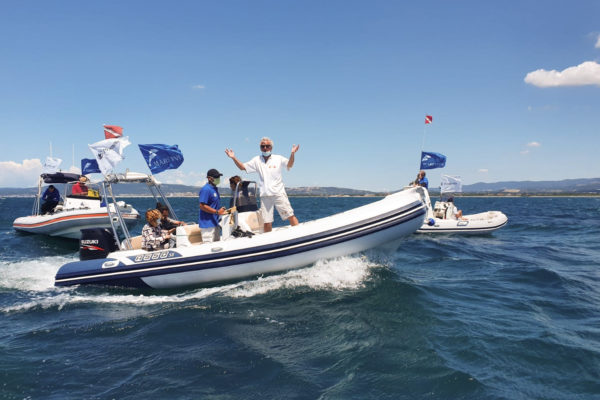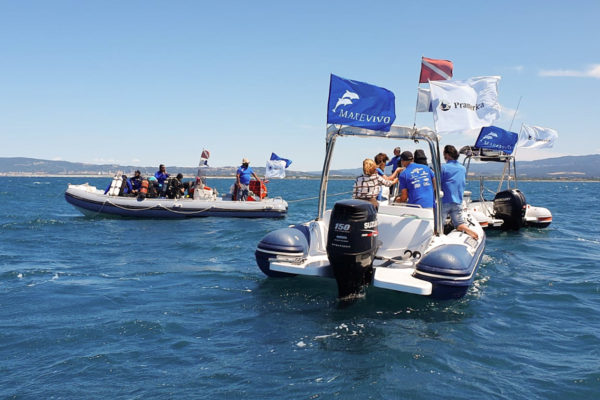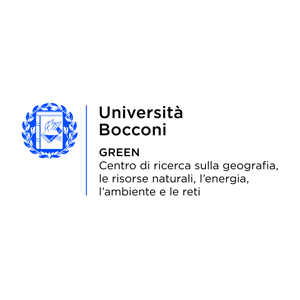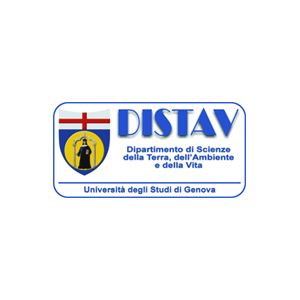Project Respect your Capital
Beached Posidonia from waste to resource
An initiative with an environmental and scientific value, in collaboration with Pramerica SGR, that has the objective of valuing the role of Posidonia Oceanica for the safeguard of biodiversity in the Mediterranean and to measure the perceived well-being and added value of such initiative not only for individuals but for the whole economy of the territory.
Why is it important to valorise Posidonia?
Posidonia oceanica is a species of great ecological value, endemic to the Mediterranean, that is, found only along the coasts of this basin, where it forms extensive underwater prairies that occupy an estimated area of about 12,000 km2 and constitutes one of the most important and biodiversity-rich ecosystems of our sea. Posidonia also, being a plant, produces oxygen, provides shelter for numerous species as well as curbing wave motion by preserving the seabed and coastline from erosion. These unique characteristics have made this plant fundamental to the well-being of the entire Mediterranean.
The ecological beach
Natural deposits of beached posidonia on the seashore (banquette) are a “value” in that they play a key role in coastal protection, retain sand and diminish the erosive power of waves. In addition, banquettes are an important source of food for many animal and plant species and thus constitute an ecosystem that gives the beach and sea a more natural feel. However, these deposits cannot always be left in place because they are sometimes perceived as an obstacle to tourism and bathing. The ecological beach, however, is always to be preferred to a completely clean beach consisting only of sand such as those we are unfortunately used to seeing more and more often.
The Project
Respect your capital
Marevivo carried out the “Respect Your Capital” project, in collaboration with Pramerica SGR, through which an important Italian marine area was redeveloped restored, and monitored, and then enhanced the results in a study in collaboration with Bocconi University of Milan and the University of Genoa.
Precious resource
Specifically, in the first part of the intervention, the association was responsible for carrying out innovative environmental interventions in the Marina di Cecina area of Tuscany to protect Posidonia oceanica, a characteristic aquatic plant of the Mediterranean Sea and a valuable resource for the marine habitat.
The recovery
The activities conducted allowed full reuse of environmentally useful resources and proper disposal of anthropogenic waste found during the operations: beached Posidonia was recovered and turned into natural fertilizer, the purified sand was returned to the beach where it belongs, and the waste was properly disposed of according to the principles of separate waste collection.
Posidonia represents the flag of the sea's health
Let us learn how to know it's big value and to respect it
Intervention on the beaches of Le Gorette and results
The goal of the project is to promote sustainable use of beached Posidonia, which instead of being thrown into landfills is used to produce compost or material for manufactured goods, according to the principle of circular economy by transforming it from waste into a resource.
In the activity carried out between May and June 2020 in the Marina di Cecina stretch of coastline, on Le Gorette beach, 585 tons of surface layer of beach were taken with an environmentally friendly system. About 150 tons of beached Posidonia was recovered, which was separated from the sand, purified from anthropogenic material (plastics and waste in general), and transformed into COMPOST (organic soil). Approximately 320 tons of purified sand was returned and restored to the strand of origin, thereby decreasing the effects of coastal erosion. The 10 tons of anthropogenic waste, obtained from the treatment, were properly disposed of. The management of the intervention was entrusted to the Esposito Group. The activity was sponsored by the Municipality of Cecina.
Beach Le Gorette Marina of Cecina
The Posidonia oceanica recovery and beach restoration activities at Le Gorette in Marina di Cecina began in mid-May and have already begun to provide the first study data for the universities involved, which, from this project, will develop replicable models of marine resource reuse, with a focus on Posidonia oceanica.
The project continues the recovery of waste from the seabed
The project continued in June and July 2020 in the area of Secche di Vada, north of Marina di Cecina, with an intervention aimed at cleaning the seabed to rid the sea and Posidonia of trash. Plastic, car and truck tires, abandoned nets, and other fishing gear that can be dangerous to marine animals and the growth and development of Posidonia were recovered. The activities were carried out by Marevivo’s Underwater Division experts and will continue in Marina di Cecina and Capraia.
The third phase of the Capraia project
Marevivo’s Diving Division activities continued on the beautiful Tuscan island. In four different dives, at Secca del Turco, Secca delle Formiche, Lo Scoglione, La Civitata, and the outer boat anchorage area, more than 3,500 square meters of seabed were monitored to analyze its condition and remove anthropogenic waste that threatens its health. The harbor and outer area were cleared of all kinds of trash, including tires, creels, plastic boxes, diving masks, nets, mooring barges, fishing lines, ropes, and more. In total, divers recovered more than 2 tons of waste, which was then properly disposed of.
The scientific disclosure of the results
The results arising from this activity have been publicized through scientific dissemination, awareness raising, and best practice study actions necessary to identify best practices to protect and enhance our country’s priceless natural heritage.
In fact, because of its focus on circular economy principles, the “Respect Your Capital” project is the subject of a study carried out by the GREEN (Geography, Resources, Environment, Energy, and Networks) Center of Luigi Bocconi University in Milan, directed by Professor Marco Percoco, and DISTAV (Department of Earth, Environmental and Life Sciences) of the University of Genoa thanks to Dr. Monica Montefalcone.
The research involves calculating the change in social welfare associated with new ways of treating beached Posidonia and cleaning up strands. Thus, the Bocconi Green Center has estimated the social value derived from innovative ways of maintaining our natural capital: ecology and economics become an integral part of the study, in an equal partnership.
Marevivo and Pramerica for the protection of our Natural Capital
Marevivo and Pramerica SGR are joining forces in the "Respect Your Capital" project: an initiative with environmental and scientific value, which aims to enhance the role of Posidonia oceanica in safeguarding the biodiversity of the Mediterranean and to measure the perceived well-being and added value of such an initiative not only for individuals, but for the entire economy of the area.
Report of the project
Infographics to better discover Posidonia
The 70x100 cm billboards are displayed on beaches affected by the recovery project.

The project in collaboration with Pramerica SGR





